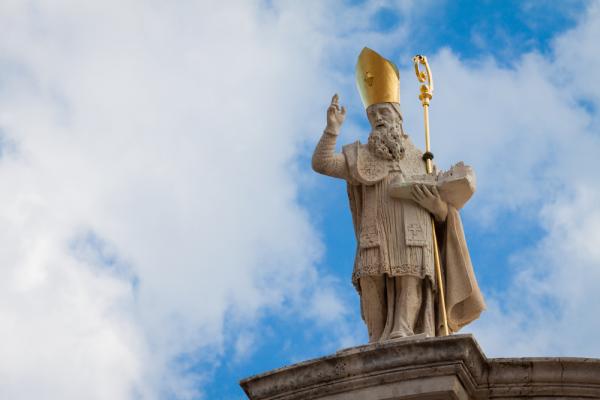Feb 2, 2018
But it would not be lost on him, the silence — our silence — on the very principles Christianity was founded on: love of neighbor, care for the poor, welcoming all. Blaise had only to renounce these values to stop the horrors inflicted upon him. Just a word to save his own neck. But he refused. Even as he was tortured and executed. How tame our religion would seem to him now, how close to the trappings of the Empire whose politicians had hauled him off to jail.
Read the Full Article

Already a subscriber? Login
